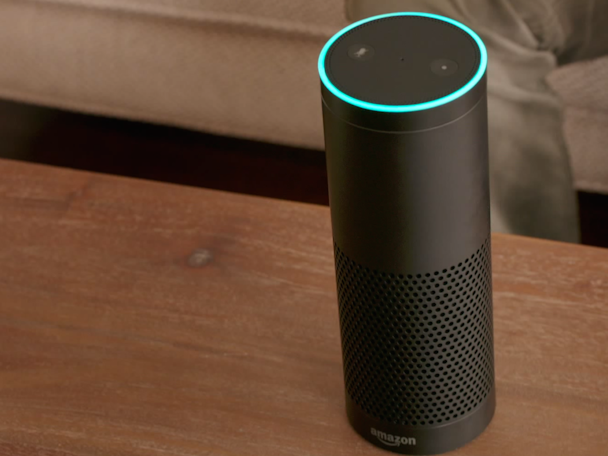WPP’s Sir Martin Sorrell: ‘Tentacles’ of Amazon could strangle Google
Sir Martin Sorrell believes Amazon could threaten Google as the biggest benefactor of ad spend, saying that the e-commerce giant’s “tentacles are spreading rapidly into all areas”.

Voice search via Amazon Echo could play a key role in the e-commerce giant's push for ad budgets.
Speaking at Mobile World Congress, the WPP chief executive discussed the online giant’s allure to advertisers at a time when demand for its biggest asset – customer data – is at a high now that advertisers are starting to understand how best to leverage those insights for sharper targeting.
Last year, the biggest single investment WPP made on behalf of clients was on Google, at just under $5bn, up from $4bn the year before, followed by a “relatively steady” $2.25bn spend on Sir Rupert Murdoch’s media conglomerate. Facebook took $1.7bn, making it the third biggest outlay, while Yahoo, AOL and Microsoft between them commanded $750m.
“Spend on Google tells you about the power of search,” Sorrell said.
Harnessing that power seems to be front of mind at Amazon, which is reportedly set to launch a paid search product. While details are threadbare, it wouldn’t be a surprise to see voice search play a critical role in whatever it is working on given that Amazon has sold more than 5.1 million of the Amazon Echo in the US since its launch three years ago. With the smart speaker, search is pushed beyond the tooldbar and into voice activation, creating more commercial opportunities for Amazon to pitch to advertisers
“The reason that Google has been so successful is that the results are clear. Facebook is woolly; it’s a brand mechanism rather than being about sales generation, said Sorrell of what makes the online giant’s a sure bet for big brand budgets and why search could power Amazon to the front of the queue.
“The gap between Google and Facebook in terms of our numbers has lessened, but Google is still of paramount importance. The threat to Google, which I discussed [with them] yesterday in San Francisco, is Amazon. It’s search on Amazon that is potentially the biggest threat.”
Numbers from financial services firm Raymond James back Sorrell up. It found that more than half (52%) of people now start their search for online shopping on Amazon, versus 38% in 2014. Compare that to search engines like Google, which two years ago was the starting point for over 55% of people’s search queries, and now just over a quarter (26%) of people use it.
So, little surprise then that Amazon's advertising business – comprised mainly of ‘sponsored product’ which appear at the top of search results – has been booming.
During its fourth-quarter earnings call, it emerged that Amazon’s was seeing a huge amount of growth in its ad business. Listed as ‘Other Revenue’ (which also includes revenue streams like credit card services), it grew 60% in North America last year but accounted for just 1.7% of its total sales from the region.
“And Amazon’s tentacles are spreading rapidly into all areas,” Sorrell said.
Last December, Amazon announced that its Web Services would power a header-bidding solution and that it was launching a Shopping Insights Service. Header bidding is viewed by many observers as Amazon's attempt to loosen Google’s grip on programmatic ad budgets, given that it would allow buyers to bid on online ads simultaneously, a ploy publishers like Trinity Mirror have used to profitable effect.
Overall, eMarketer has projected that Amazon could make over $1bn next year from its ad business in the US alone.
But what it will need to show, like the others, is how it can link to sales.
“Clients that say to me ‘because of disruption we have to make sure the return on our media investment is considerable’. Now, it’s a bit of a strange one as a lot clients spend more money on sales [promotions] than marketing, and it’s the most extraordinary thing that sales is disassociated with marketing,” Sorrell continued.
“You have a lot of focus on media costs and there is not sufficient focus on sales and the sales function. Uniting the sales and marketing function is going to be more important. Having data that shows you can optimise your portfolio is the holy grail.”

